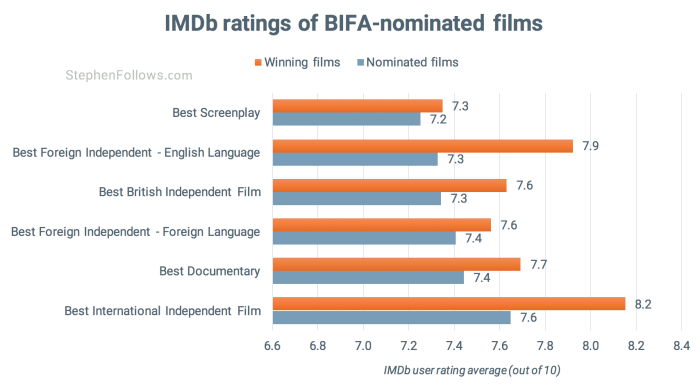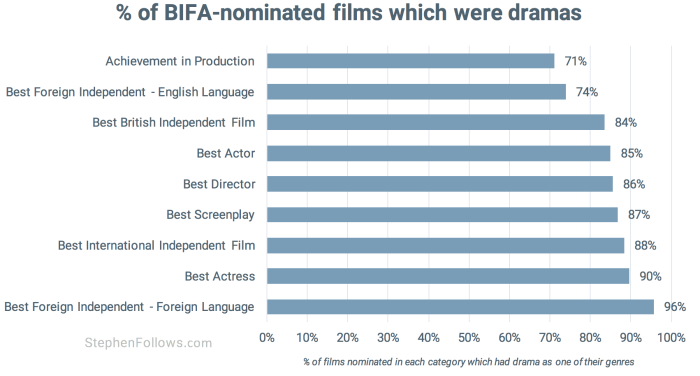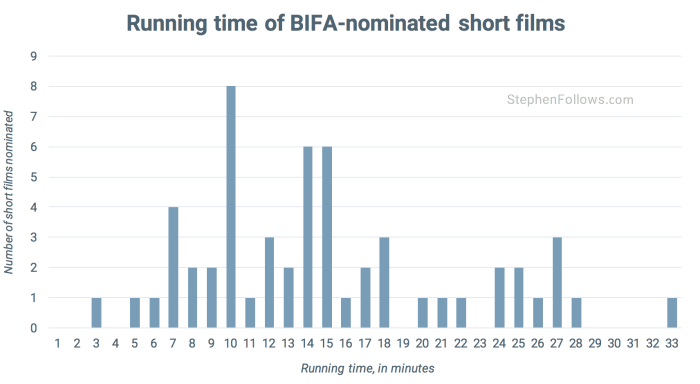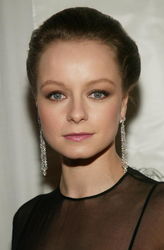 Last night, the winners of the British Independent Film Awards (BIFAs) were announced. I wrote a piece for the official BIFA program and I agreed to hold off publishing it until the actual ceremony. Therefore, below you’ll see a breakdown of the kind of films which have been nominated at the British Independent Film Awards.
Last night, the winners of the British Independent Film Awards (BIFAs) were announced. I wrote a piece for the official BIFA program and I agreed to hold off publishing it until the actual ceremony. Therefore, below you’ll see a breakdown of the kind of films which have been nominated at the British Independent Film Awards.
The BIFAs were established by Raindance to celebrate and reward independent British filmmaking and held its first event in October 1998 in the Cafe Royal. Since then the event has grown in size and stature, becoming a major event in the indie film calendar.
The BIFA definition of “independent film” is that the film must be produced (or predominantly co-produced) by be a British company or is in receipt of 51% of its budget from British sources. films can be funded by a major studio, so long as studio funds don’t exceed £10 million.
Full disclosure; I wrote ‘Sign Language‘ which was nominated for Best Short Film in 2011. We ate and drank at the BIFA’s expense but we didn’t win. I’m not sure if this makes me biased and, if so, in which direction.
Do the best films win?
Yes, on average the BIFA-winning films are better rated by IMDb users than the average for all nominated films. The highest rated films are the non-British films, which is to be expected when you consider that there are a far larger pool of films to draw from.

Note: Between 1998 and 2002 the BIFAs had two different categories for the best non-British film: “Best Foreign Independent – Foreign Language” and “Best Foreign Independent – English Language”. From 2003 onward, these have been combined into a singular “Best International Independent Film” award.
Dramas rule
Drama is the most popular genre, with 70% of all BIFA-nominated films having it as one of their (up to three) genres. Comedy is the next most popular (26%) followed by romance (15%) and thriller (14%).
84% of films nominated for Best British Independent Film having drama as one of their genres. This is higher than the representation of dramas among all British films made (48% for films shot 2005-2014) but less than the shortlisted films at the London Film Festival (92% between 2011-15).

Nice shorts
Half of all BIFA-nominated short films were between 8 and 15 minutes long, with an overall average of 15 minutes.

Traditional gender roles
We can see clear gender roles emerging between the types of films with ‘Best Actor’ and ‘Best Actress’ nominations. 33% of the films with nominated actresses were romantic films, compared to just 13% of films with nominated actors. Conversely, 25% of the films with ‘Best Actor’ nominations were crime films, with compared to just 10% for films with ‘Best Actress’ nominations.
Friends of the BIFA family
 Samantha Morton is the person with the largest number of BIFA nominations, having been in the running for six Best Actress awards, two Supporting awards and a Douglas Hickox award (for her directorial debut The Unloved).
Samantha Morton is the person with the largest number of BIFA nominations, having been in the running for six Best Actress awards, two Supporting awards and a Douglas Hickox award (for her directorial debut The Unloved).
However, despite her many nominations, she’s only won once; a Best Actress award in 2002 for her role in Morvern Callar.
Shane Meadows has seven nominations and Peter Mullan, Jim Broadbent, Paddy Considine, Lynne Ramsay and Ken Loach all have six.
Data
The raw data for today’s article came from the BIFA people, although it was easy to verify via public sources. I used IMDb’s genre classification, which assigns up to three genres for each film.
Over the years the BIFAs have created, retired and changed a few of their categories (as most long-running awards do).
Unless otherwise stated, all results related to the BIFA awards between 1998 and 2014 inclusive.




